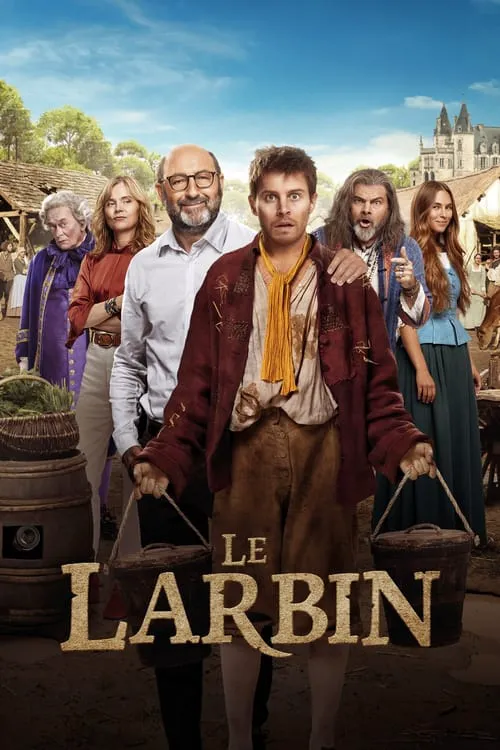King of My Castle

Plot
King of My Castle is a satirical drama film that delves into themes of class struggle, social satire, and the consequences of unchecked power. The story revolves around a wealthy hotel owner, known only by his alias, who enlists the services of a seasoned film director, played by a veteran actor, to create an elaborate 18th-century village set. The elaborate set is designed to be a realistic simulation of life in the 18th century, complete with authentic architecture, costumes, and even livestock. However, unbeknownst to the spoiled hotel owner's son, who is a lazy and entitled young man with a penchant for entitlement, his father has been planning a sinister scheme to teach him humility. The son, who is initially seen lounging in his luxurious mansion, carefree and detached from reality, is suddenly and brutally kidnapped by his father's henchmen and dosed with a powerful sedative. When the son awakens, he finds himself in the midst of the 18th-century village set, with its rustic homes, narrow dirt roads, and bustling marketplaces. However, as he soon discovers, this is no ordinary film set. He is, in fact, trapped in a simulated reality, designed to mimic the hardships and struggles of a peasant living in 18th-century Europe. The son is left to believe that he has somehow traveled back in time as punishment for his misdeeds. The director and his team, who are watching him from behind the scenes, are tasked with ensuring that the son fully immerses himself in this simulated reality, undergoing the same hardships and struggles as a real peasant. The son's every move is monitored and documented, with the aim of producing a film that is both educational and entertaining. As the son navigates this alien world, he begins to experience the harsh realities of peasant life. He is forced to work long hours in the fields, often under the scorching sun, and is subjected to the ridicule and disdain of the peasants who are tasked with keeping him under surveillance. With each passing day, the son's initial shock and outrage give way to a deep sense of despair and hopelessness. The son's descent into despair serves as a potent commentary on the corrosive effects of privilege and the consequences of unchecked power. As he struggles to come to terms with his new reality, the son begins to experience a growing sense of empathy and understanding for the peasants who are forced to live in the 18th-century village. He witnesses firsthand the brutalities of poverty, the ravages of disease, and the dehumanizing effects of exploitation. As the son's journey deepens, he begins to realize that his experiences in the simulated reality are not merely a form of punishment, but also an education. He begins to understand the value of hard work, the importance of community, and the dangers of unchecked privilege. Through his experiences, the son begins to undergo a transformation, shedding his entitled persona and emerging as a more compassionate and empathetic individual. The film's use of satire and social commentary serves as a powerful critique of the excesses of the wealthy elite and the ways in which they exploit the poor and vulnerable. By placing the son, a symbol of privilege and entitlement, in a world of hardship and struggle, the film highlights the deep social and economic fissures that exist in our society. As the son's transformation becomes more pronounced, he begins to rebel against the simulated reality and the director who is controlling his every move. He starts to question the morality of his father's actions, and the true nature of his confinement. The son's growing awareness serves as a powerful commentary on the human spirit, which refuses to be contained or controlled. Throughout the film, the director, who serves as a symbol of the creative genius behind the simulated reality, is shown to be increasingly torn between his artistic vision and his moral obligation to the son. As the son's rebellion grows, the director begins to question the ethics of his actions, and the true cost of his creation. Ultimately, the film raises important questions about the nature of reality, the impact of privilege and power, and the human condition. By placing the son, a symbol of entitlement, in a world of hardship and struggle, the film serves as a powerful commentary on the dangers of unchecked power and the importance of empathy and compassion. As the son's journey comes full circle, he is able to return to the present, forever changed by his experiences in the simulated reality. However, the film's ending serves as a poignant reminder of the enduring impact of the simulated reality on the son's psyche, leaving the audience to ponder the long-term consequences of his experiences in a world beyond our own.
Reviews
Recommendations




